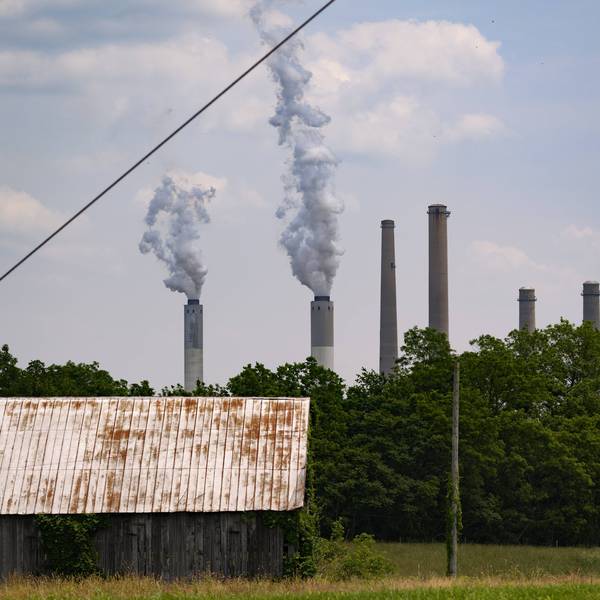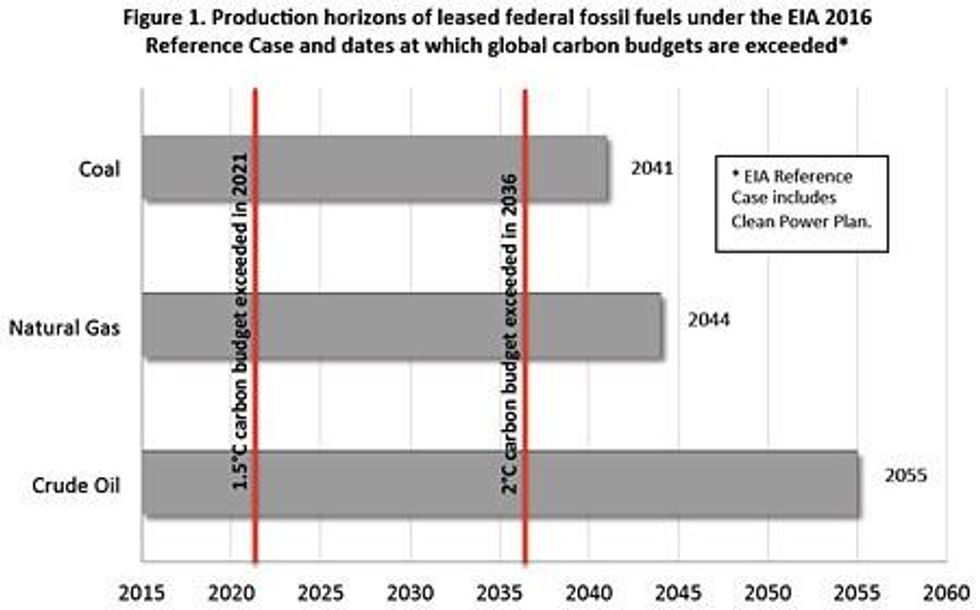U.S. public lands and ocean regions already under lease for fossil fuel extraction will be producing coal, oil, and gas decades beyond the point at which scientists predict the world will surpass the temperature targets set out in the Paris climate agreement.
This means that even without the additional fossil fuel leases still on the auction block, the U.S. is already on course to drastically renege on its climate promises.
That's the conclusion of a recent analysis of federal data (pdf) done by EcoShift Consulting for conservation groups Friends of the Earth and Center for Biological Diversity, which bolsters arguments that say the U.S. must keep fossil fuels in the ground.
Their report, Over-Leased: How Production Horizons of Already Leased Federal Fossil Fuels Outlast Global Carbon Budgets, supports "the growing call to President Obama by hundreds of organizations to immediately halt new federal fossil fuel leasing--a step that will keep up to 450 billion tons of potential carbon pollution from reaching the atmosphere," the Center for Biological Diversity notes in a statement.
"Our analysis demonstrates the inconsistency of federal land and climate policy," said Dustin Mulvaney of EcoShift Consulting. "These projections show that there is already more public fossil fuel under lease to last well beyond the point at which it can be safely burned."
The analysis found that oil, coal, and gas leases will produce dirty fuels many decades into the future:
- Federal crude oil already under lease will produce for the next 39 years, through 2055. These production horizons extend 34 years beyond the 1.5-degree Celsius threshold and 19 years beyond 2 degrees Celsius.
- Federal coal already under lease will produce 25 more years, through 2041 or 20 years beyond the 1.5-degree threshold and 5 years beyond the 2-degree threshold.
- Federal natural gas already under lease will produce 28 more years, through 2044. That is 23 years beyond the 1.5-degree threshold and 8 years beyond 2-degree threshold.
"Importantly, each new federal lease and related infrastructure locks in fossil fuel dependence for at least a decade," adds the Center for Biological Diversity.
The group also notes that the "new findings add to prior research estimating that ceasing federal fossil fuel leasing would remove up to 450 GtCO2e from the threat of development (EcoShift 2015) and prevent 100 million tons in annual emissions through 2030 (SEI 2016)."
"Hopefully, we've heard the last time that [Interior Secretary Sally Jewell] or any other government official dismisses the keep it in the ground movement as naive," said Benjamin Schreiber, climate and energy program director for Friends of the Earth. "This analysis makes it clear that not only does the government need to stop leasing but that much of the carbon that has already been leased must also stay in the ground."




